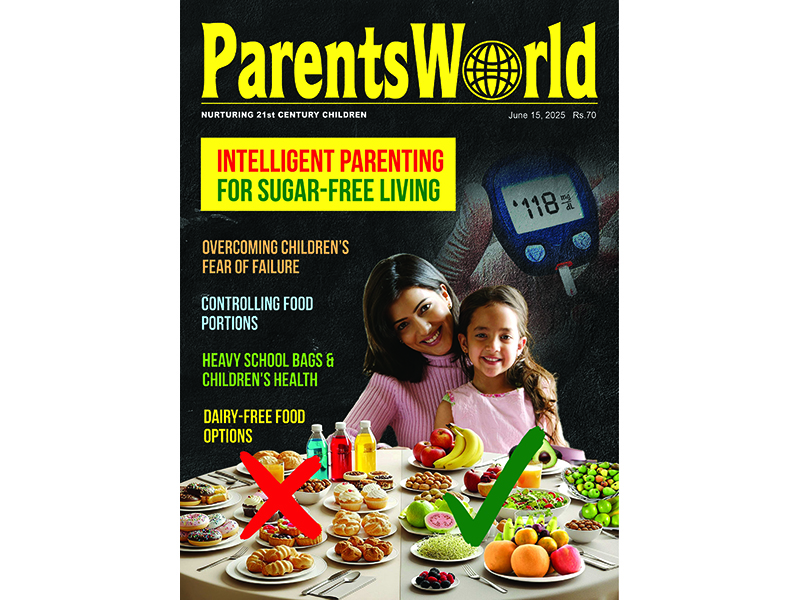
Alarming statistics
Your cover story ‘Intelligent parenting for sugar-free living’ (PW June) has done a good job of alerting parents to the growing epidemic of childhood diabetes. It’s alarming that sugar accounts for 13-15 percent of the daily calorie intake of children in the 4-10 age group and 15 percent for children aged 11-18 years, far surpassing the WHO’s recommended maximum of 5 percent.
One hopes that the recent circular from CBSE and CISCE exam boards to their affiliated schools to establish ‘sugar boards’ will create awareness within children and parents about the importance of reducing sugar consumption.
Vrinda Das
Kolkata
Reducing failure fear
Thank you for the insightful Ask Your Counselor column (PW June) in which psychologist Ayushi Srivastava gave useful suggestions for parents to cope with children who fear failure.
I am the mother of a 15-year-old child who is under pressure to perform well in exams. I will follow your advice and encourage her to open up about her academic fears and anxieties and accordingly work out an action plan. The advice to set realistic academic goals is particularly helpful. By breaking down her academic tasks into smaller, achievable steps, she will feel more in control and less overwhelmed. I also intend to involve her in defining these goals, allowing her to take ownership of her learning trajectory. This way, she can evaluate progress in tangible terms, which will reduce her fears and boost her confidence.
Gungun Singh
Amritsar
Valuable advice
Samantha Vlcek’s special essay titled ‘Is your child nervous about going back to school’ (PW June) is a confidence-building guide for parents to ease children (and themselves) into a new school year.
Vlcek validates children’s emotions by reminding parents that anxiety about new teachers, classes, and routines is “normal and expected — even if it is uncomfortable”. Her practical action plan — starting with casual conversations to identify what specifically is causing the worry to helping them address the problem — is valuable advice.
Shahnaz M.
Chennai
Inadequate essay
Your health and Nutrition essay on ‘Heavy school bags & children’s health’ (PW June) raises a critical issue. However, it fails to offer new data or in-depth analysis of the damage heavy school bags do to children’s physical health. For instance, though the essay suggests that schools should limit textbooks and provide student lockers, it doesn’t question why schools aren’t implementing these measures, which states have succeeded, or how parents and educators can push for change.
Prachi Dutt
Pune
Excellent suggestions
Your Adolescence story ‘Tips to control food portions’ (PW June) is novel and insightful. Paediatrician Dr. Snigdha Samanta does a great job of acknowledging the increased nutritional needs of teenagers while also addressing the importance of limiting food portions to maintain healthy weight and well-being.
Dr. Samanta uses easy-to-understand visual cues like the plate method — half veggies, quarter protein, quarter grains — and hand-size estimates — fist, palm, cupped hand — to help teens and parents gauge portion sizes intuitively. Her suggestions to promote mindful eating in teens were also excellent.
Seema Shahane
Mumbai
Inspiring reminder
Your interview with Luke Coutinho ‘Teach the Next Generation to Eat Better and Live Healthier’ (PW June) is insightful, especially for its recommendation of indigenous foods and traditions. Nutrition education grounded in our local culinary heritage not only promotes healthier eating but also fosters cultural pride and sustainability in children.
It’s an inspiring reminder that educating children about food for as vital as teaching them to read and write. Schools should take the lead by organizing visits to local farmers’ markets, planting kitchen gardens, educating children about mindful eating practices, and including lessons on local foods.
Gayatri Dalal
Delhi
